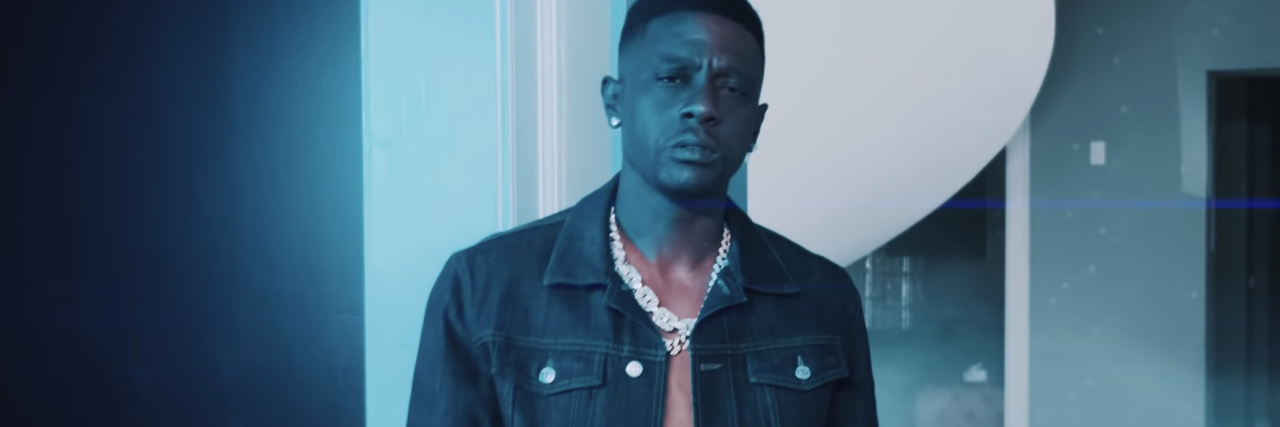How Rapper Boosie Reminded Us That We Need to Protect Gay Black Men
Editor's Note
If you experience suicidal thoughts, the following post could be potentially triggering. You can contact the Crisis Text Line by texting “START” to 741741.
We need to do better for our gay Black men.
As a straight Black man of faith, I say this as someone who didn’t always believe this. Growing up, having feminine interests deemed me weak or inadequate. The majority of my cousins were girls, so it was nothing for me to pick up a doll and mimic what I saw them doing. I remember wanting an Easy-Bake Oven. I was confused about why it wasn’t OK to have such a marvel on my wish list. And while my many other similar experiences don’t compare to moving through life as an openly gay Black man, I clearly remember the name-calling, put-downs, and othering. It was as if my man-ness and sexuality were always on high alert. My worth was something to be decided on, going beyond my character or however else I showed up.
I toed the line, often coming close to a beat down or just outright ousting from friend groups. All this to say, this type of culture still exists to this day. It’s the same ideas and attitudes that shaped Boosie, a rapper, the villain of this story, the one who wished suicide on Lil Nas X in a social media post for everyone to see. Boosie wasn’t afraid of the consequence because he was and is the consequence. He is a representative of voices and beliefs that gatekeep one’s literal right to be alive, have access to proper healthcare, play sports, or be fully employed.
Boosie has struck before. Early this year, in July, Boosie took to Instagram to make a threatening rant towards Lil Nas X, on the heels of DaBaby’s disparaging and homophobic comments about people living with HIV and AIDS, which were made during a performance at Rolling Loud. Boosie has been incensed by Lil Nas X, whose public antics aren’t for everyone, myself included, but who still doesn’t deserve the expletive-laden diatribes he’s received from someone who feels threatened by his sexuality. Still, this isn’t just a Boosie thing. It’s an “us” thing. It starts with examining ourselves and the stories we tell ourselves about Black men in the LGBTQIA+ community.
For me, part of what fueled much of the bigoted ideologies I’ve done years of work to unlearn is my Christian upbringing. I’ve often reflected on how I subscribe to a faith that says “love thy neighbor” only to see people I’ve looked up to doing the complete opposite. This, too, adds to our culture of violence and discrimination. I’m not perfect and I have so many places where I fall short, but one thing I know to be true is that nothing I believe says that people in the queer community deserve the type of exclusion and harm they receive on a daily basis.
Lil Nas X has since, skillfully, used the attacks and controversy for promotion and has received an outpouring of support. But the same isn’t true for the many other gay Black boys and men who are reminded, yet again, that some believe it’s not OK for them to exist. This should serve as another call to us to work even harder on checking our biases, educate ourselves, take note of who we invite and pass on (for any team-related tasks/situations), and hold leaders responsible for the spaces they have yet to create. We must protect all of our brothers, not just some. If we don’t, who will?
Image via YouTube

